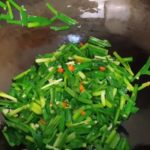Pregnancy is a time when women often become more conscious of their diet and the potential benefits or drawbacks of various foods. One vegetable that has sparked curiosity among expectant mothers is watercress. This green leafy vegetable has a lot to offer in terms of nutrition, and understanding its benefits can help pregnant women make informed decisions about their diet. So, let’s explore the advantages of incorporating watercress into a pregnancy diet.
Note: The content below is for informational purposes only. Always consult your doctor or a trusted healthcare professional before making any dietary changes during pregnancy.
1 Is Watercress Safe for Pregnant Women?
There is currently no scientific research or evidence suggesting that pregnant women should avoid watercress. In fact, it is generally safe for expectant mothers to include this vegetable in their diet without worrying about adverse health effects. However, for those with a weakened immune system or conditions such as inflammatory bowel disease or stomach aches, it is advisable to refrain from consuming watercress or to do so in moderation.
Additionally, pregnant women who choose to eat watercress should ensure it is thoroughly washed and consumed in moderate quantities to maintain optimal health for themselves and their unborn child.
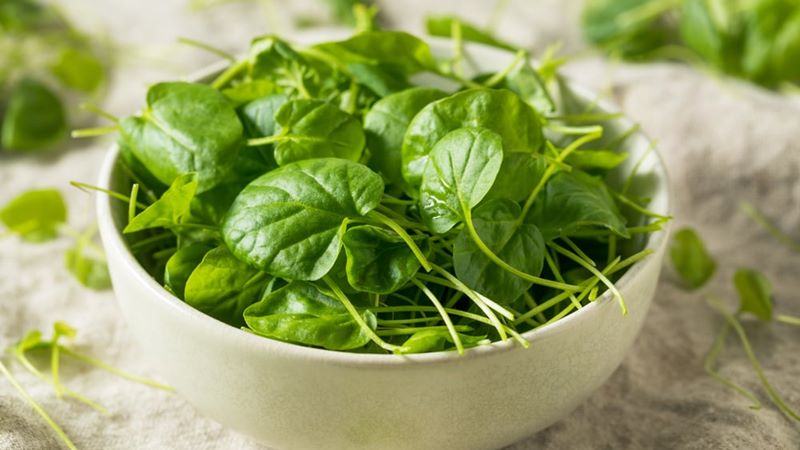 Is Watercress Safe for Pregnant Women?
Is Watercress Safe for Pregnant Women?
2 Benefits of Watercress for Pregnant Women
Reduced Risk of Cardiovascular Disease
Watercress, a member of the cruciferous vegetable family, has been linked to a decreased risk of cardiovascular disease. A study involving 500,000 individuals who regularly consumed cruciferous vegetables found a 16% lower risk of cardiovascular disease. Including watercress in a pregnant woman’s diet may contribute to a reduced risk of heart disease.
Prevention of Heart Attacks and Strokes
Watercress is rich in nutrients like , , and . These compounds possess cardioprotective properties and can aid in preventing cardiovascular diseases and controlling high blood pressure. By consuming watercress, pregnant women may bolster their defense against the development of heart disease and reduce the likelihood of heart attacks and strokes.
Lowering High Blood Pressure During Pregnancy
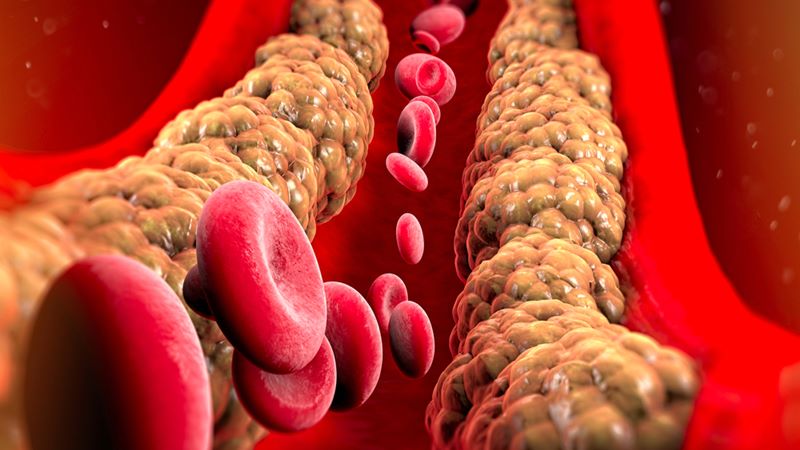 Lowering High Blood Pressure During Pregnancy
Lowering High Blood Pressure During Pregnancy
Watercress is a source of nitrates, which have been shown to reduce inflammation and decrease the thickness of blood vessels. Consuming watercress can help regulate blood pressure and increase nitric oxide levels in the blood, benefiting pregnant women with hypertension.
Reducing Bad Cholesterol
Eating watercress can effectively lower bad cholesterol levels in the body and improve cardiovascular health.
Fighting Osteoporosis
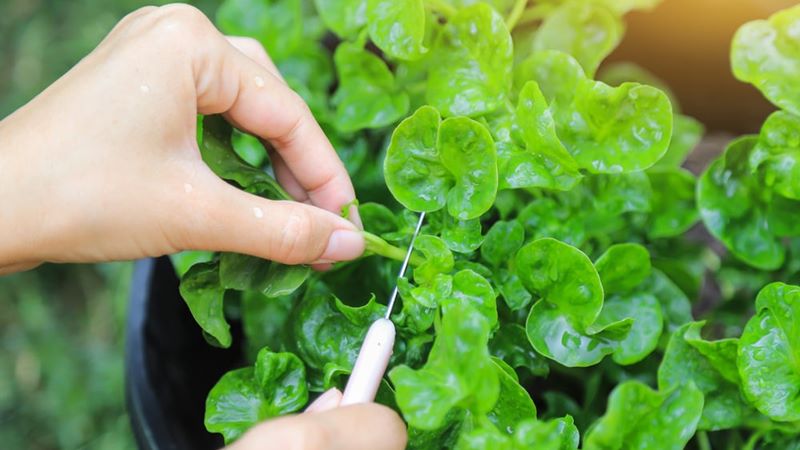 Fighting Osteoporosis
Fighting Osteoporosis
Watercress is packed with essential minerals for bone health, including , , , , and Including watercress in a pregnant woman’s diet can effectively reduce the risk of osteoporosis.
Boosting Immunity
Watercress is rich in compounds that enhance the body’s immune response, such as Consuming watercress can help pregnant women strengthen their immunity and fight off common illnesses like the flu.
3 How Much Watercress Should Be Consumed Daily?
While watercress offers numerous health benefits, it is important not to overindulge. Pregnant women should maintain a balanced diet that includes a variety of green vegetables and other nutritious foods to avoid nutritional imbalances that could affect the developing fetus.
Furthermore, pregnant women should only consume watercress that has been thoroughly cleaned and properly cooked.
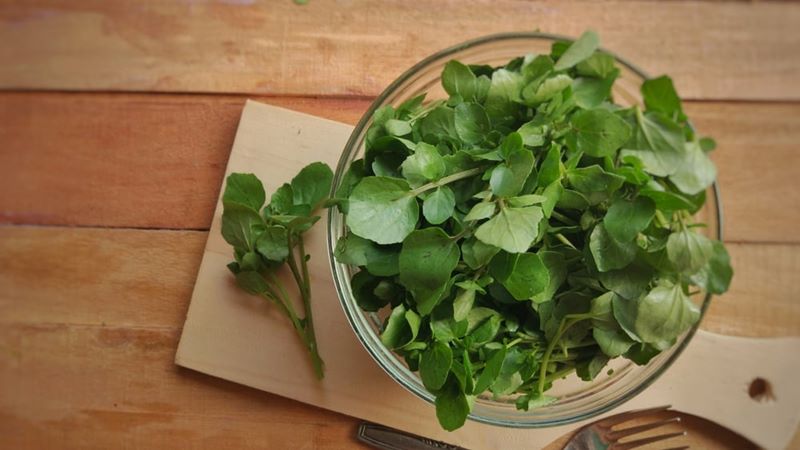 Daily Watercress Intake Recommendations
Daily Watercress Intake Recommendations
4 Precautions for Pregnant Women Consuming Watercress
While watercress offers a plethora of health benefits, there are a few precautions to keep in mind when incorporating it into a pregnancy diet:
- Individuals with a weakened immune system or inflammatory bowel disease and stomach aches should refrain from consuming watercress.
- Always properly clean and prepare watercress before consumption, removing any damaged parts and thoroughly rinsing it to eliminate dirt and bacteria. Ensure that the vegetable is thoroughly cooked before eating.
- Opt for watercress from reputable sources: To ensure the highest quality and safety, purchase watercress from trusted suppliers who adhere to food safety and hygiene standards.
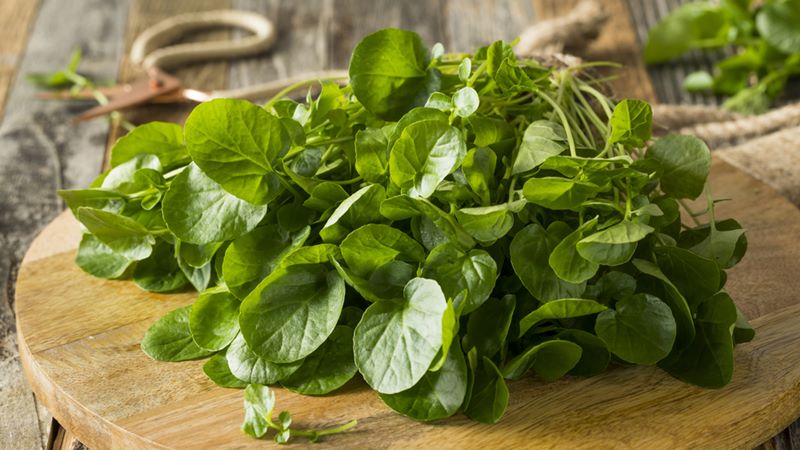 Precautions for Pregnant Women Consuming Watercress
Precautions for Pregnant Women Consuming Watercress
Watercress is a nutritious vegetable that offers several health benefits for pregnant women. Expectant mothers can safely include it in their diet while being mindful of the quantity consumed and not overindulging. Maintaining a balanced diet with a variety of nutritious foods is key to a healthy pregnancy.
Source: Marrybaby.vn

























